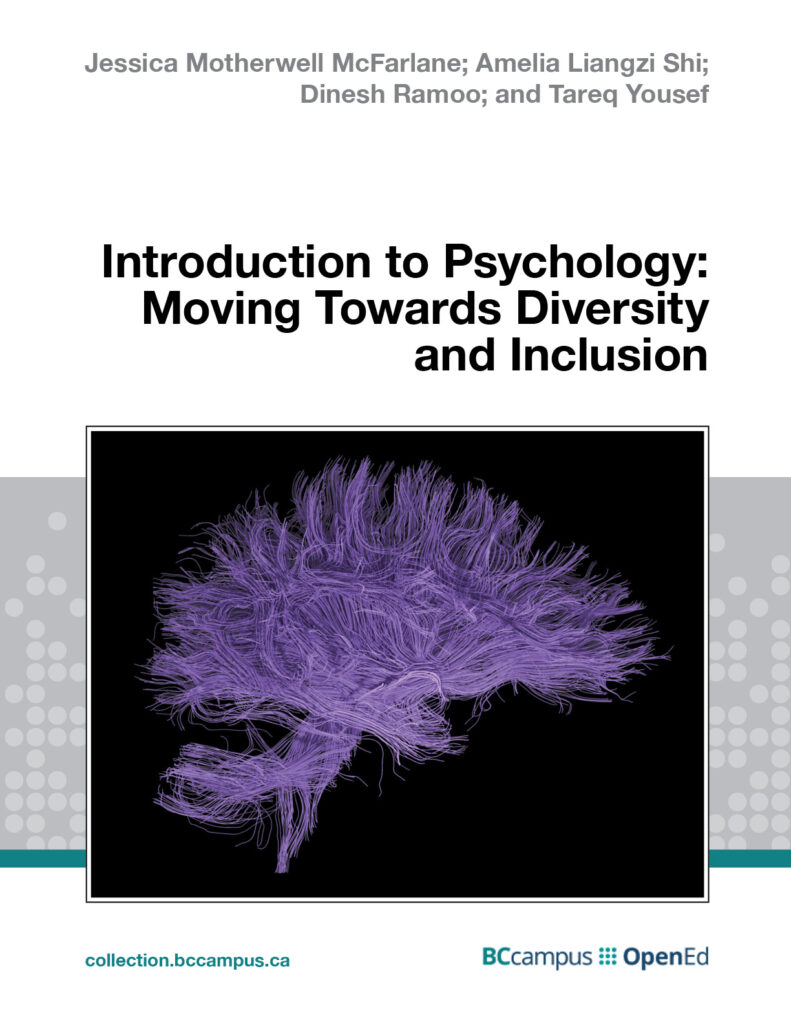BCcampus is pleased to announce the publication of a new introductory psychology open textbook: Introduction to Psychology: Moving Towards Diversity and Inclusion.

This open textbook integrates discussions on the psychological impacts of colonization, offering a richer, more comprehensive view of psychology. Expert contributions bring deep understanding and practical relevance, while plain language descriptions make complex concepts accessible. Diverse voices—including those of women, BIPOC, queer, and disabled scholars—fill critical gaps left by traditional texts. Deep dives and case studies provide in-depth exploration and real-world application, promoting critical thinking and peer-to-peer learning.
This textbook is a remix and adaptation of five open textbooks and includes a considerable amount of original content, all with a focus of creating an open textbook that better centres diversity, equity, and inclusion than previous texts. In addition, this textbook was designed to be accessible for students with disabilities
This book represents the work of a collaborative team comprised of four authors, two project managers, two editors, ten student reviewers, three advisors on topics related to Indigenous perspectives, equity, and inclusive design, two illustrators, and an open education and copyright librarian. It was a province-wide collaboration, including contributions from Justice Institute of British Columbia, University of British Columbia Okanagan, College of New Caledonia, Capilano University, Thompson Rivers University, and BCcampus.
This project was funded by BCcampus through a grant from the William and Flora Hewlett Foundation. It also included generous in-kind contributions from the Justice Institute of British Columbia and an additional grant from Capilano University.
If you adopt this book in your course, please let us know: Tell Us You’re Using an Open Textbook.
